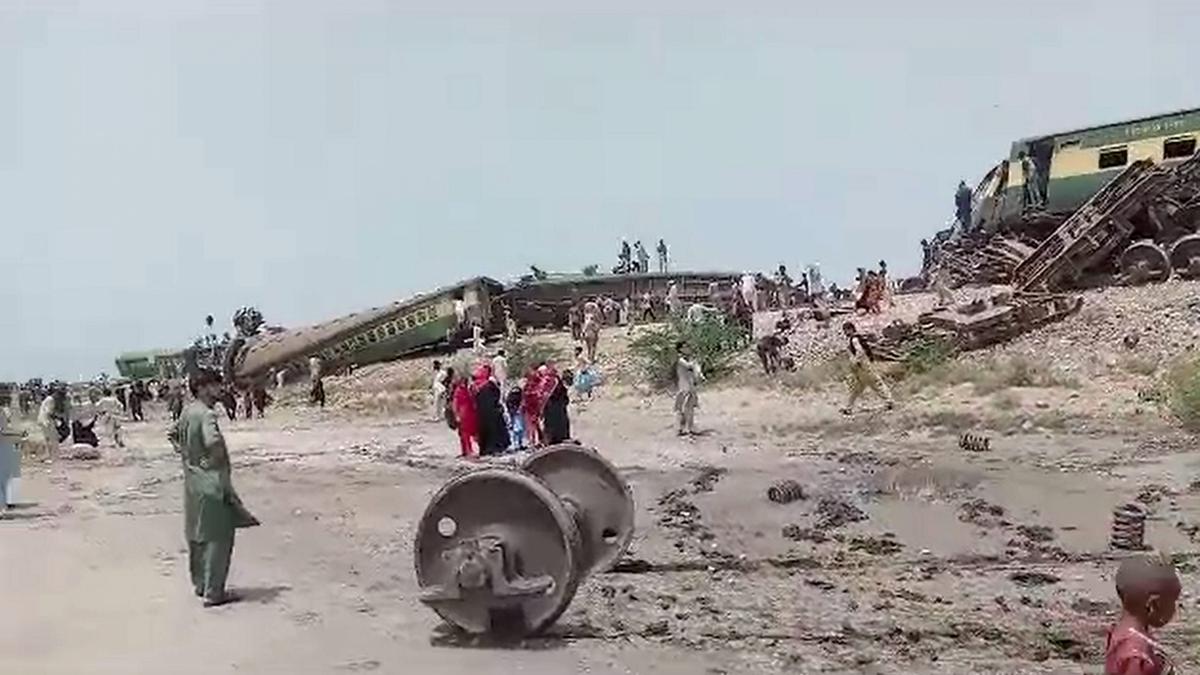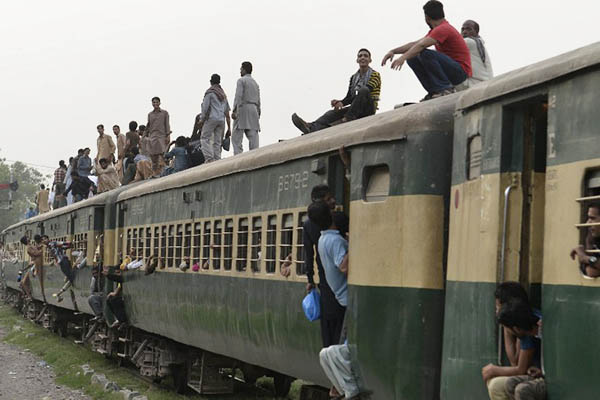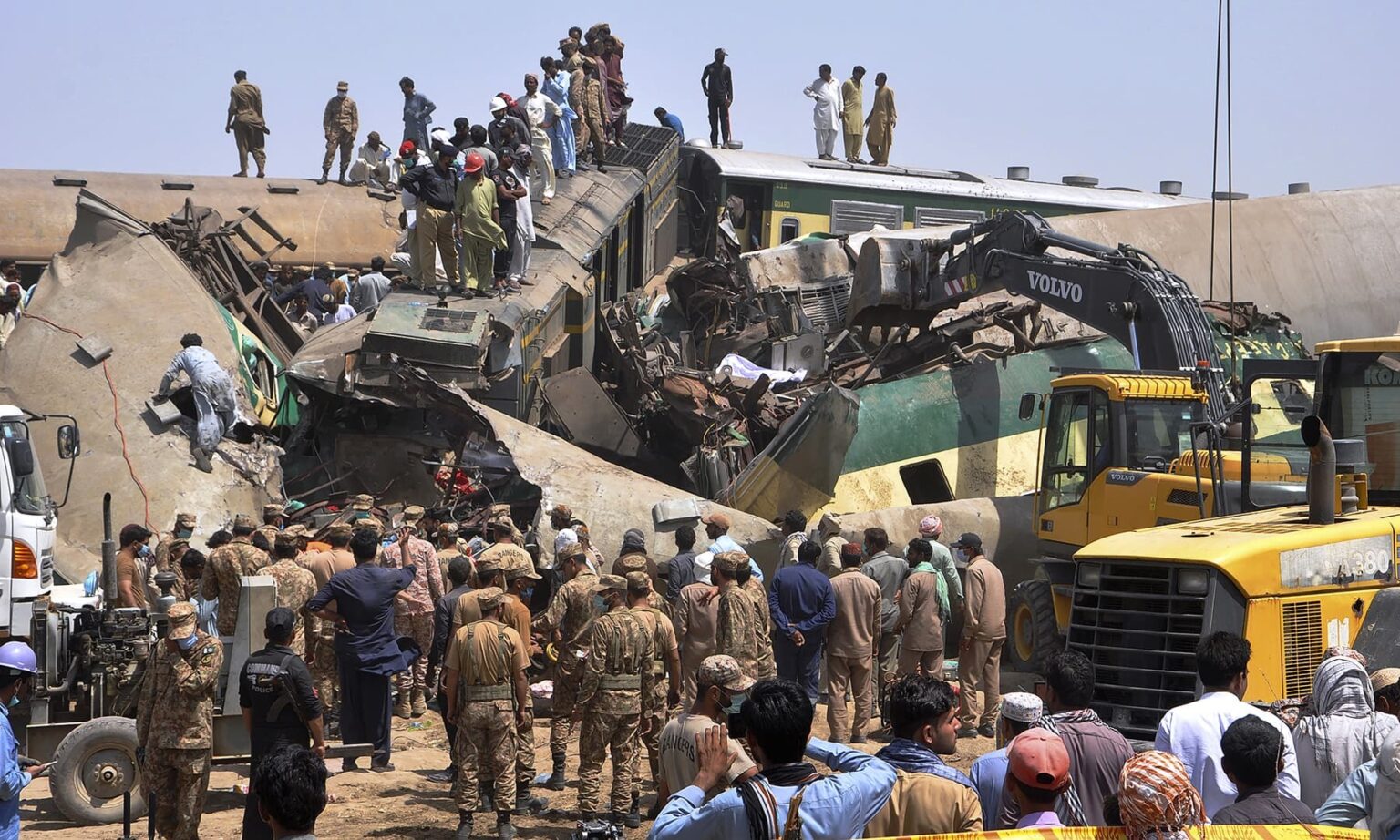A devastating incident unfolded in the Sindh Province of Pakistan On Sunday, as a passenger train , Hazra Express derailed, resulting in a substantial loss of lives and leaving many others injured. The train with approximately 16 to 17 cars and over 1000 passengers on board, was en route from Karachi to the northwest Khyber PakhtunKhwa province when tragedy struck.

Reports indicate that at least 10 cars of the Express train derailed while crossing a canal bridge near the Sarhari Railway Station in the Nawabshah area. The accident claimed the lives of at least 30 individuals and left over 100 others wounded. Local government and Police officials swiftly responded to the scene, initiating rescue operations.
Sindh’s Chief Minister, Syed Murad Ali Shah, confirmed the casualties and informed that nine of the derailed cars had been cleared. An ongoing rescue operation, led by various agencies including the Pakistan Army, is focused on freeing passengers trapped within the remaining carriages. Critical Injuries are to be transferred to Karachi, the southern port city, for better medical care.
Railway Minister, Khwaja Saad Rafique, addressed the media and emphasized the authorities’ commitment to investigating the incident. While sabotage of any kind has likely been ruled out, all possibilities are being explored. He stated that most likely the accident occurred due to technical faults.
The incident caused a halt in train operations, disrupting daily commutes for countless individuals. Railway officials estimated that it could take up to 18 hours to restore normal service. Deputy Superintendent of Pakistan Railways, Mahmood Rehman, confirmed that several bodies had been recovered from the wreckage, while around 100 injured individuals were being transported to nearby hospitals.The focus remains on the ongoing rescue operations and determining the root cause of the accident.
The driver of the ill-fated Hazara Express recounted that the train was traveling at a speed of approximately 50 kilometers per hour when multiple compartments derailed in succession.The maximum speed limit for the route is 105 kilometers per hour, suggesting that the train was well within the prescribed limit.
As rescue operations continued, additional troops were called in, and Army Aviation helicopters were dispatched to transport the injured to medical facilities. The magnitude of the disaster prompted the involvement of Army Chief General Asim Munir, who directed the rescue operation. Pakistan Railways’ spokesperson in Karachi shared that the delayed application of brakes exacerbated the impact of the accident. While heavy machinery was employed to lift the derailed carriages, trains departing from Karachi were likely to experience delays.
This tragedy reignites concerns about the state of Pakistan’s railway infrastructure. Accidents like this are not uncommon due to issues like outdated maintenance systems, signal malfunctions, technical faults, and ageing engines. The country’s railway system spans around 7,500 kilometres, and successive governments have aimed to secure funding for network upgrades. The Pakistan Peoples’ Party, which holds power in the province, called upon its workers to participate in the relief efforts.
Rising Toll and Safety Alarms: Pakistan’s Railways Need Reform

Sunday’s incident follows a pattern of Railway accidents in Pakistan, underscoring the urgent need for comprehensive reforms and investments in Rail Safety and the modernization of railways to prevent such unfortunate incidents.
Coincidentally, Sunday’s incident occurred just a day after three coaches of the Allama Iqbal Express, traveling from Karachi to Sialkot, derailed without causing any injuries.
In April, fire erupted in a bogie of the Karachi Express, which was en route from Karachi to Lahore resulting in the loss of seven lives.
Tragedy struck again on June 7, 2021, when two express trains collided in Sindh’s Ghotki, leading to the unfortunate deaths of 32 people and injuring 64 others.












